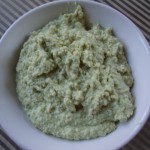The Dirty Dozen and The Clean Fifteen
Prevention mag just came out with the updated lists of the dirtiest and cleanest veggies—ones that you should definitely splurge and buy organic and the ones that you can get away with buying conventional. There’s some newbies on the lists and some surprises, too.
The Dirty Dozen: Buy Organic
Celery: 75% of crop is grown in the fall when rain and wind promote the growth of bacterial and fungus and because we eat the whole stalk, it gets sprayed A LOT for pests.
Peaches: Because of the peach fuzz, it can trap pesticides easily, and since they’re sprayed every week or two, it’s good to go organic with these guys.
Strawberries: Since they are delicate, they’re prone to attacks by pests, so they get sprayed with pesticides often—mostly for cosmetic reasons.
Apples: Since they can be stored up to 9 months AND are prone to 30 different insects AND 10 diseases, apples are sprayed continuously.
Blueberries: They are favorites of magots and bagworms, so they are treated with pesticides. They are also new to the list.
Nectarines: Even without the fuzz, they are susceptible to rot and scarring.
Bell Peppers: They lack the bitter compounds that act as bug repellents (unlike their cousins, broccoli and sweet peppers) and have crevices and creases where pesticides can collect and hide.
Spinach: Like me, lots of insects and grasshoppers LOVE spinach, plus, it tends to pull DDT residue out of the soil and into the leaf. ( DDT can live in the soil way after it was banned).
Kale: Sprayed heavily for any type of insect.
Cherries: They don’t have a peel for protection and if one maggot gets into the shipment, the entire load is dumped, so growers don’t risk that. They spray the heck out of them.
Potatoes: I have always heard this about potatoes—even growers will not eat their own potatoes unless they grow them organically. They are sprayed up to five times throughout the growing season and then again after harvesting to prevent sprouting and molds.
Imported Grapes: During their trek from down south, they easily can contract Botrytis cinerea rot. . .hmmm…sounds gross. It causes fruits to split and leak, so farmers want to ward that off, and they aggressively treat them with pesticides. Domestic ones are grown in the dry desert climates of Southern California, where the rot doesn’t thrive.
The Clean 15: Save Your Pennies
Onions: They have their own protective chemicals and are only treated once early in the season. However, the residues are removed by the outer layer of the bulb during harvest.
Avocado: It’s all on the peel, baby.
Sweet Corn: It’s all on the husk, baby.
Pineapple: If treated, it’s early in the season and the residue is gone by harvest time. Otherwise, it is removed with the outer rind.
Mangos: It’s all in the peel, baby. Plus. . .they are grown in climates where fungus isn’t a problem–nothing hand washing won’t take care of.
Sweet Peas: Protected by the pod, baby.
Asparagus: Insects don’t have time to wreak havoc since the spears grow so dang fast.
Kiwifruit: Thanks to Lacewings and parasite wasps, pests are kept at bay.
Cabbage: The outer leaves—that are sprayed early on—are removed before sale.
Eggplant: The slick surface sheds chemicals easily.
Cantaloupe: It’s all in the rind, baby.
Watermelon: Again, all in the rind, baby.
Grapefruit: In the rind. Do we see a pattern, here?
Sweet Potato: This one surprised me because of it’s dirty cousin, but because it has a milky-white sap that gums up insect mouthparts, they leave this root veggie alone. They are also cured at warm temps and high humidity that causes the skin to thicken, therefore, protecting it further.
Honeydew Melon: Say after me. . .It’s all in the rind, baby.
Before There Was Food, Inc.
There was Fast Food Nation. Me and the Husband watched this movie just recently and it reiterated for me how much I LOVE being a vegan. I think it really pushed the hubby to fully be He-gan (male vegan) and to not even crave a burger again. Unlike Food, Inc., it’s not a documentary, but sort of is. It stars Greg Kinnear and others, like Bruce Willis and Ethan Hawke in a scripted, yet awareness-producing flick about slaughterhouses and what exactly goes on behind the scenes. We’ve all heard Paul McCartney say, “If slaughterhouses had glass walls, everyone would be a vegetarian.” Well, he ain’t kidding, folks. I won’t lie—there are certainly some graphic scenes at the end, but they portray what goes on in a real slaughterhouse, confirming Sir McCartney.
Excellent movie. The author of Fast Food Nation, Eric Schlosser, is also co-producer of Food, Inc. Definitely worth a watch with your non-vegan pals.
How can you eat anything with eyes?
-Will Kellogg









